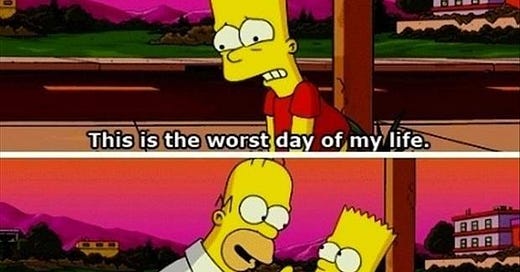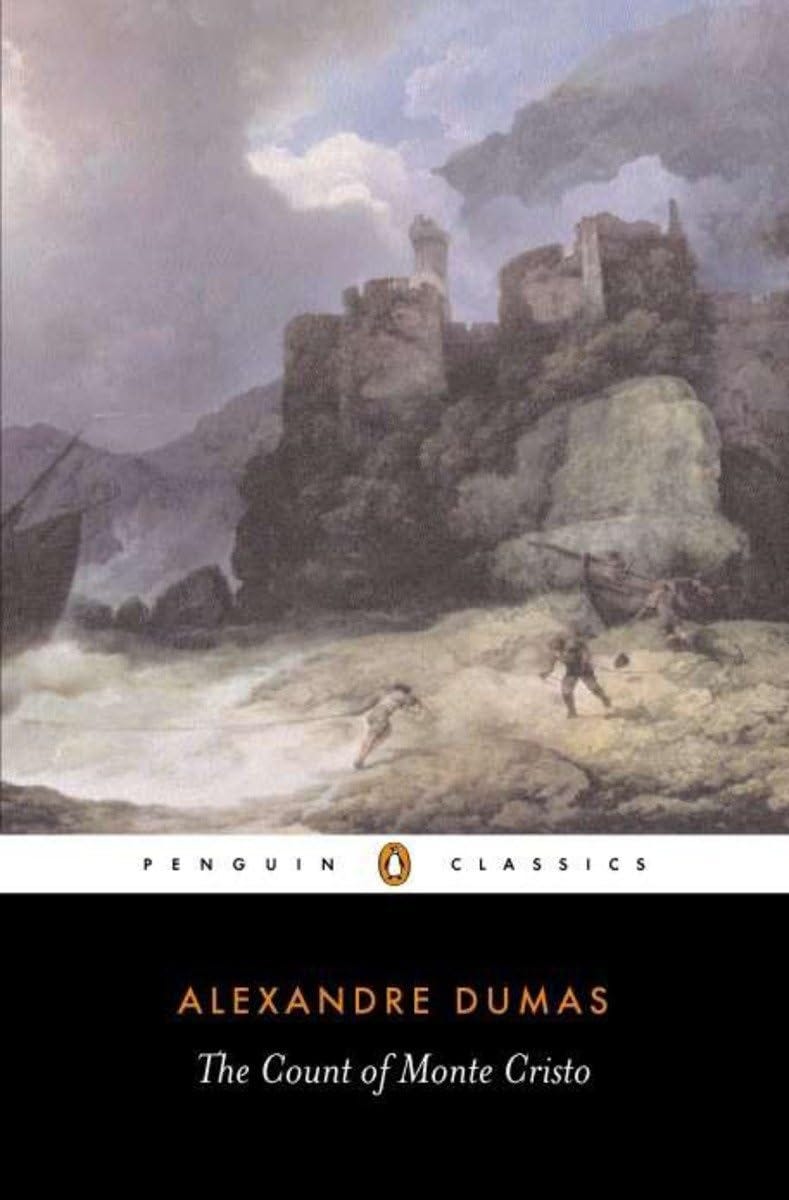Newsletter No 29: When the World Feels Like It’s Crumbling
Weekly thoughts, readings, musings and links from Athena Drakou, best known as The Climate Historian.
The next few years will be difficult. Darkness is spreading across the world; uncertainty and unrest dominate headlines, magnified by grim images and divisive words from those in power. It’s a heavy burden to bear, this constant reminder of a world in turmoil. From the small corners of our world to the most powerful country in the world, everything reminds us that things are not going well. The world is on fire, and the basic principles of a reality we have grown accustomed to, appear to be crumbling.
So, how do we manage? How do we keep our hope without giving in to despair? How do we move forward, in the days and years ahead, without sinking into grief and resignation?
Over the years, I found that the best defence lies in a simple truth: the world is not ending. No matter how dire the signs may be, things always change, sometimes slowly and painfully, but change is inevitable. I’ve lived through tough times—personal crises, economic downturns, political upheavals, pandemics, and environmental disasters. And yet, even in those moments when it felt like the world was sinking, life continued, and in the day-to-day reality, I was, mostly, okay.
That is because human life is not just the sensational headlines, the negativity of social media, or the societal conditions. Life is something richer, multi-dimensional and incredibly resilient. It always finds ways to adapt and to remind us of its beauty even amidst the most challenging circumstances. No matter how chaotic the world may seem, life goes on.
So, that’s the defence: to live fully, despite it all. Yes, it’s crucial to read, stay informed, analyse and understand what is happening around us. But it is also important to build our defences—not only to help us get through the tough times but to be prepared to react when necessary. Darkness is but a temporary reality that requires a huge effort to maintain and is always fragile and desperately vulnerable to the inbreaking of light. One thing is certain: when the tide eventually turns—and it will—we will be better people for having endured. When the World Feels Like It’s Crumbling (The Heretic Witch)
This week on The Climate Historian
How a Fossil Fuel President Gains Power Amid Environmental Crisis
This week on the Climate Historian, I write about the complex relationship between politics, emotions, and morality, particularly through the lens of climate change and the re-election of Donald Trump. I discuss the dual nature of politics, where emotions such as hope and anger drive public opinion, yet cold pragmatism often dictates decision-making.
Read the article here: How a Fossil Fuel President Gains Power Amid Environmental Crisis
According to the Copernicus Climate Change Service, the annual sea surface temperature (SST) over the extra-polar oceans reached a record-breaking 20.87°C. The year started with a strong El Niño, which later shifted to neutral conditions.
But how much did El Niño contribute to this record?
To understand the magnitude of El Niño's impact, let’s go back to 1982—a year marked by one of the strongest and most devastating El Niño events in recorded history.
Read the article here: How the 1982 El Niño Changed Our World
Climate News
A third of the Arctic’s tundra, forests, and wetlands have become a source of carbon emissions as global heating ends thousands of years of carbon storage in parts of the frozen north. This will create a positive feedback loop, meaning these emissions amplify global warming, creating a self-reinforcing cycle where warming causes more emissions, which in turn accelerates warming.
A third of the Arctic’s vast carbon sink now a source of emissions, study reveals by Patrick Greenfield (The Guardian)
Wind and solar growth over the past decade pushed EU fossil-fuel generation in 2024 to its lowest level in 40 years, despite the long-term decline of nuclear power. The increase in wind and solar generation in the EU also helped avoid €59bn in fossil-fuel imports over the past five years. (Carbon Brief Report)
In the meantime, in Greece
In a move that was supposed to herald a new era of environmental stewardship, Greece has postponed the establishment of two marine parks in the Ionian and Aegean Seas to mid-2025. On the surface, the initiative promises to protect the region’s marine biodiversity. However, beneath this glossy green narrative lies a controversial story of conflicting priorities, hydrocarbon extraction against marine biodiversity protection.
At the centre of the story lies the proposed Ionian Sea National Marine Park. A region intended to be a sanctuary for marine life, it appears to have become a stage for corporate interests. In a recent announcement, the Greek Ministry of Energy and Environment granted Chevron rights to explore hydrocarbons in waters adjacent to the planned marine park. Yes, you read that right. The same waters supposedly destined for preservation are now open to fossil fuel exploration.
Hydrocarbons Meet Marine Parks in Greece by The Climate Historian
A perfect confluence of an Arctic air outbreak and a low-pressure system that pulled in moisture from the Gulf of Mexico brought rare, record snow to the Gulf Coast.
Here’s What Caused the Rare Record Florida Snow by Andrea Thomson (Scientific American)
Book of the Week: The Count of Monte Cristo by Alexandre Dumas
Imagine this. You are 19 years old with your whole life ahead of you. You’ve just been promoted at work, and you are ready to marry the love of your life. The future is bright, and full of promise.
And then, in a single, devastating moment, it all comes crashing down. You’re falsely accused and imprisoned, condemned to isolation in a desolate dungeon. Your youth, your life, is stolen, not by fate, but by the envy and treachery of a group of men who conspired against you.
After years of despair, you forge yourself. You meet a fellow prisoner, a brilliant man, who teaches you everything he knows and reveals the location of a treasure. After 14 years you escape. You are no longer the same person; you are reborn, hardened, driven, and immensely rich. Now, you have only one purpose: revenge.
This is the story of The Count of Monte Cristo by Alexandre Dumas
Read more: Revenge, Redemption, and Resilience - Reading: The Count Of Monte Cristo by Alexandre Dumas (The Heretic Witch)
What else I’m reading
A recent ProPublica investigation sheds light on the operations and collaborations among American far-right paramilitary groups. These organizations, effectively functioning as domestic terrorist entities preparing for conflict, have anticipated the potential return of Donald Trump to the political stage as an opportunity to expand their influence and activities. However, these groups face significant internal challenges common to far-right movements globally, including mutual distrust, frequent infighting, and a lack of broader relevance.
The report is based on information provided by an individual who independently infiltrated two such groups. Acting without prior disclosure, he gathered intelligence over time and ultimately shared his findings with a journalist, revealing a disturbing look into these organizations' activities and dynamics.
Inside the Turbulent, Secret World of the AP3 Militia — ProPublica by Joshua Kaplan
Middle-aged women now have a slightly higher cancer risk than their male counterparts, and young women are nearly twice as likely to be diagnosed with the disease as young men, according to the report, published in CA: A Cancer Journal for Clinicians. It appears that breast and thyroid cancers in women are driving this increasing trend. ( By Jacqueline Howard,CNN)
Tobacco researchers face abuse. Cyberattacks, lawsuits, surveillance, and even physical violence are just some of the tactics industries use on researchers who study the harms caused by tobacco, alcohol, and ultra-processed foods, a review has found. Being labelled a “nicotine Nazi” or “health fascist” can take a toll on the well-being of public-health researchers. (Nature)
The Climate Historian is an independent publication, entirely supported by readers like you. It has also a Discord and a Patreon page. Post about anything you want, ask questions, whatever. 90% of the content is free, but for the remaining 10% you can subscribe here.






